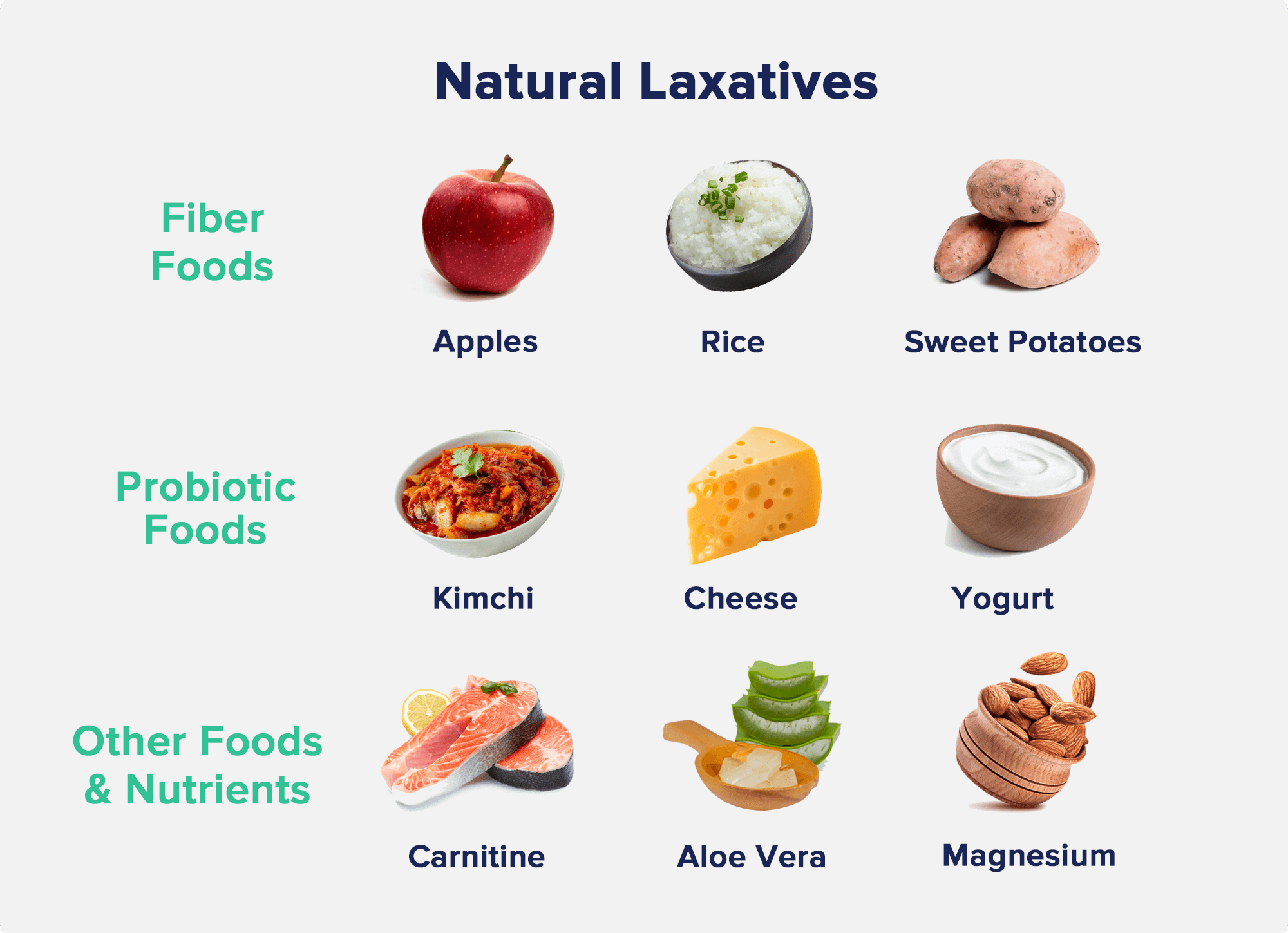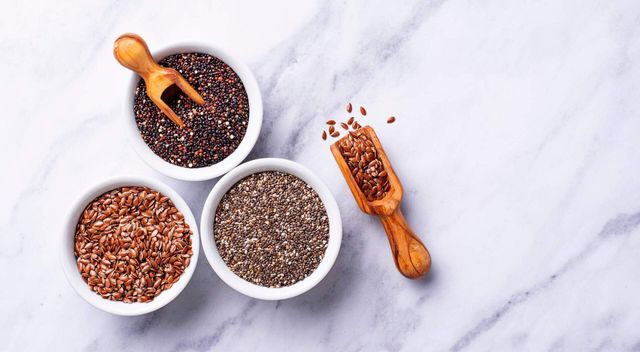Natural Laxatives: Your Guide to Safe and Effective Remedies for Constipation
Key Highlights:
- Constipation affects many people, and understanding laxatives may help find relief
- Diet changes, hydration, and natural remedies are important ways that may help to combat constipation
- Caution is needed when using laxatives, and medical advice should always be sought
- Certain dietary sources, oils, and fermented foods play a role as natural laxatives
- Precautions and considerations are necessary to use natural laxatives safely and effectively
Introduction

Constipation impacts millions of people. It’s a painful and uncomfortable condition that does not have a one-size-fits-all solution. Relief may be found through lifestyle, diet changes, and natural remedies. Knowing the types of laxatives and risks is a vital part of finding the right management strategy.
In this guide, we will look at natural laxatives. We will talk about their potential benefits and how to add them to your day-to-day life. We will also cover the key safety points and risks that come with using them. This will allow you to make the best decision when it comes to dealing with constipation.
Understanding Laxatives
First, we need to understand what laxatives are and how they function. We will also give an overview of the different laxatives and their pros and cons.
What are Laxatives?
Laxatives are substances that may help relieve constipation. They come in many forms, like pills, powders, and liquids. They may also be found in foods and oils. The main goal is to soften stools and get the bowels moving.
How Laxatives Work
Laxatives work in different ways, but they all have the same aim which is to move the bowels. They bulk up stools or soften them. Some may help by making the inside of your gut smooth or getting your colon to act up. These actions help stools to get through the gut more efficiently.
Types of Laxatives
There are lots of laxatives, each works differently.
- Bulk-forming laxatives boost the size of stools, making them easier to pass.
- Stool softeners pull water into the intestines, to soften stools for easy passage.
- Lubricant laxatives cover the stool surface and make it slippery for easy passage.
- Osmotic laxatives pull water into the bowels. They then make bowel movements easier by making the stools bulkier.
- Stimulant laxatives cause the intestines to contract. These speed up the movement of stool.
There are also natural laxative alternatives that may provide the same kind of relief.
Natural Laxatives for Constipation Relief
Let’s explore the natural ways that may help you to deal with constipation. There are many choices like oils, dietary changes, probiotic foods, and herbal laxatives. The best option depends on your needs and likes.
Foods high in fiber are natural laxatives. They may help fight off constipation. Here are a few high-fiber foods that are good to include in your daily meals:
1. Chia Seeds
Chia seeds are rich in fiber, with about 10 grams per ounce. They soak up water and form a gel, which may soften stools and improve regular bowel movements.
2. Berries
Berries like strawberries, blueberries, and blackberries are packed with fiber. By eating berries, you may improve stool frequency, and stool consistency and reduce gas.
3. Legumes
Legumes such as beans, chickpeas, lentils, and peas have a mix of fibers. These fibers may improve stool form and bowel function. Plus, they offer prebiotics, which feeds the good bacteria in your digestive system.
4. Flaxseeds
Flaxseeds are rich in both soluble and insoluble fiber. This makes stools bulkier and keeps your bowel movements regular. One spoonful of flaxseed has about 3 grams of fiber. You may easily add flaxseed to your smoothies, salads, or baked goods.
5. Leafy Greens
Leafy greens like spinach, kale, and collard greens are loaded with fiber and other nutrients. Eating these greens makes your stools bulkier and increases your bowel movements. Plus, they contain magnesium, which draws water into the colon and softens stools.
6. Apples
Apples are rich in fiber and may lessen constipation. They contain pectin, a type of fiber that softens stools and speeds up their passage through the gut.
7. Oat Bran
Oat bran is sourced from the outer layer of oat grains. It’s rich in fiber and helps maintain a healthy digestive system. One cup of raw oat bran is packed with 14.5 grams of fiber.
8. Prunes
Prunes are known for their high fiber and sorbitol levels which makes them a natural laxative. They may increase stool frequency and enhance its consistency, proving as a potentially effective remedy for constipation.
9. Kiwifruit
Kiwis not only have fiber but also other enzymes that aid digestion. A single kiwi offers nearly 2.3 grams of fiber, which may support healthy bowel movements and overall digestive health.
Hydration and Constipation
Importance of Water
Staying hydrated is crucial for regular bowel movements. Drinking water softens stools and lets them move more easily within your gut. It also aids in getting rid of waste from the body.
Other Hydrating Beverages
Next to water, other drinks may also support bowel functions. Having warm water or botanical teas may stimulate digestion and relieve constipation but caution, drinks with a lot of sugar or caffeine may worsen constipation symptoms.
Probiotic and Fermented Foods
Your gut health may also get a boost from probiotics and fermented foods. They may help your digestion and serve as natural laxatives.
1. Kefir
Kefir, a fermented drink, is packed with probiotics. This may do wonders for your digestive health. Regularly drinking kefir may lead to improved stool shape and frequency, less need for laxatives, and better bowel function.
2. Greek Yogurt
Another probiotic-rich food is Greek yogurt. The “live and active cultures” in Greek yogurt may assist digestion and lessen constipation by fostering the growth of beneficial gut bacteria.
3. Other Probiotic Foods
Other probiotic food choices include sauerkraut, kimchi, miso, tempeh, and kombucha. Adding these to your diet may enhance your digestive health.
Oils for Constipation Relief
Some oils may be used as natural laxatives. Their consumption may help with constipation.
1. Olive Oil
Olive oil may soften stools and facilitate passing stools. Having a spoon of olive oil on its own, or as part of a meal is a simple way to leverage its laxative benefits.
2. Castor Oil
Castor oil, made from castor beans, has ricinoleic acid. This component aids digestion and stimulates bowel movements. Consuming castor oil in moderation may alleviate constipation symptoms.
3. Coconut Oil
Coconut oil, another useful option, has medium-chain fatty acids. These may aid in digestion and make stool consistency softer. It’s a helpful choice for those with constipation.
Herbal Laxatives and Supplements
Several herbal laxatives and supplements offer natural laxative properties. These may support healthy bowel movements and reduce constipation.
1. Senna
Senna, a plant-derived laxative, is commonly found in over-the-counter products. Sennosides in senna make the nerves in your colon active. This may aid in bowel movements.
2. Rhubarb
Rhubarb, a plant with sennoside A, has natural laxative effects. Eating rhubarb may soften stools, ease bowel movements, and thus help ease constipation.
3. Psyllium
Psyllium, a widely known fiber supplement, comes from the Plantago ovata plant’s husks. As a non-fermentable soluble fiber, psyllium may ease bowel movements by making stools bulkier.
4. Magnesium Citrate
Magnesium Citrate, available as an over-the-counter supplement, acts as an osmotic laxative. This pulls water into the intestines, which softens stools and increases bowel movement frequency.
5. Aloe Vera
Aloe vera contains anthraquinones, known for having natural laxative properties. Consuming aloe vera juice or adding aloe vera to your diet may help relieve constipation.
Other Natural Remedies for Constipation
1. Exercise
Regular physical activity may keep constipation at bay. Including moderate exercises like walking, swimming, or cycling in your routine may improve digestive health.
2. Coffee
For some people, coffee stimulates the digestive system. Research shows that coffee may induce bowel movements in certain cases due to its stimulating effect.
3. High-Fiber Fruits and Vegetables
Fruits and vegetables that are high in fiber, like apples, pears, broccoli, and carrots, are beneficial. They support healthy digestion and relieve constipation.
Here’s a table summarizing natural laxatives and their examples:
| Natural Laxative | Examples |
| Dietary sources | Chia seeds, berries, legumes, flaxseeds |
| Hydration | Water, herbal teas |
| Probiotic foods | Kefir, greek yogurt, sauerkraut |
| Oils | Olive oil, castor oil, coconut oil |
| Herbal laxatives | Senna, rhubarb, psyllium, magnesium citrate |
| Other remedies | Exercise, coffee, high fiber fruits and vegetables |
Precautions and Risks of Natural Laxatives
While natural laxatives may help cope with constipation, it is important to use them correctly.
1. When to See a Doctor?
If you have chronic or severe constipation, see your healthcare provider. They can diagnose any underlying conditions and suggest the right management strategy.
2. Side Effects and Interactions
Beware of potential side effects like bloating, gas, and stomach pain when using natural laxatives. Also, consult your healthcare provider before starting any supplements or herbal remedies. They possibly may interact with other medicines or worsen health conditions.
3. Overuse and Dependency
Although natural laxatives may relieve constipation, do not use them excessively. Long-term or excessive use can lead to dependency or other health problems. Always consult with a healthcare provider before using any new treatment for the long term.
There are possible precautions and risks with natural laxatives:
| Precautions and Risks | Considerations |
| When to see a doctor | Seek medical advice for chronic or severe constipation |
| Side Effects | Be mindful of potential side effects and interactions |
| Overuse and Dependency | Avoid long-term or excessive use of laxatives |
Conclusion
Constipation is a common issue that can greatly affect your daily life. Many natural laxatives may promote healthy bowel movements and provide relief. You may try out various diet changes, and herbal remedies, and drink a lot of water to get your best management plan. Always reach out to your healthcare provider before starting a new routine. Also, remember the possible risks and side effects of natural laxatives use.









